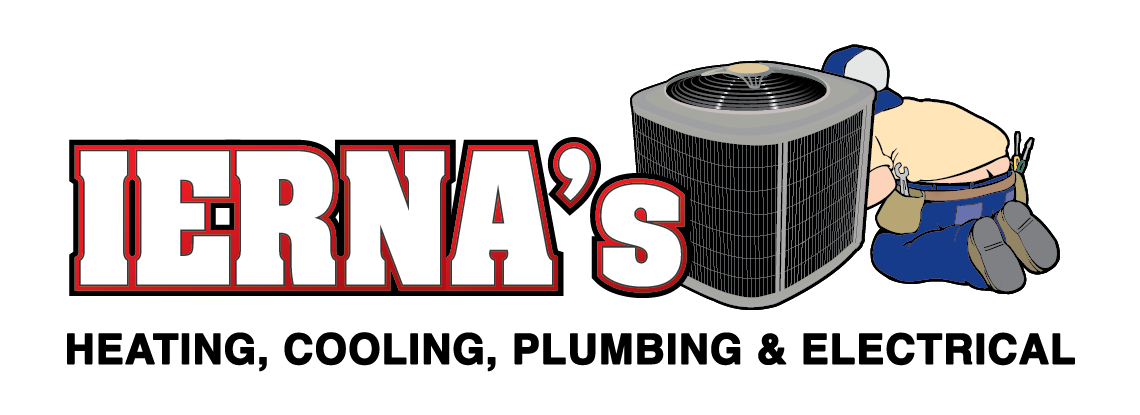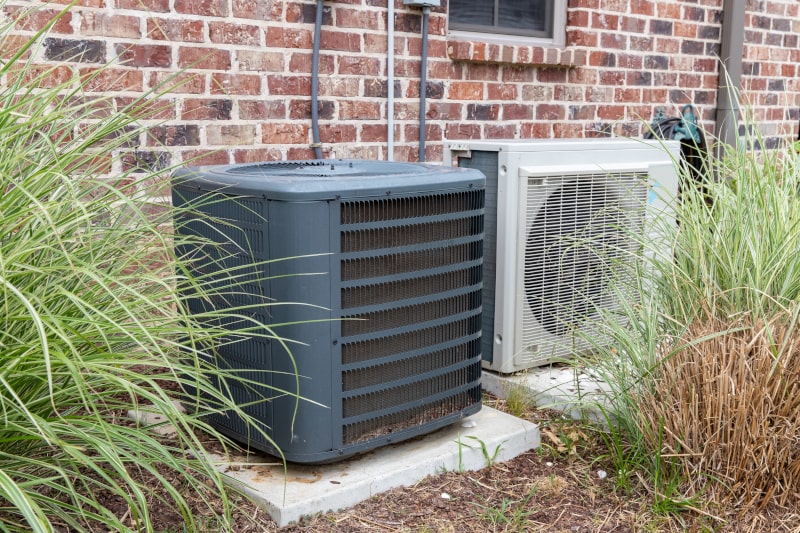
As a Florida resident, you’re accustomed to the state’s unique climate, but winter brings its own set of challenges for your HVAC system. While Florida winters are mild, you should still maintain your system for when the time comes to turn it on. This includes checking and replacing filters, inspecting ductwork, and ensuring your system runs efficiently. Neglecting these steps can lead to decreased performance and higher energy bills.
Table of Contents
While DIY checks are helpful, a trained technician can identify and address issues that might not be immediately apparent. Regular professional maintenance can extend the lifespan of your HVAC system and improve its overall performance.
Keep reading to learn more about our HVAC Florida winter checklist for a peaceful home environment.
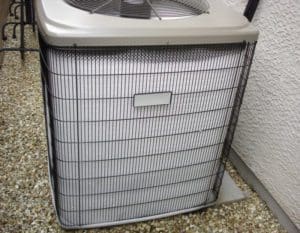
HVAC Problems We’re Trying to Avoid
Maintaining a functional HVAC system in Florida is beneficial during the winter months. While the state is known for its mild winters, there are still specific HVAC problems homeowners should be aware of, like:
Frost
Frost can form on your heat pump in Florida’s winter. The heat pump works by evaporating refrigerant to absorb heat, which lowers the condenser’s temperature and leads to moisture accumulation. This moisture can freeze around the coils in colder temperatures, leading to ice formation.
Uneven Heating
Are you experiencing uneven heating, with one room warm and another cold? This could be due to closed louvers on your ducts or a clogged air filter blocking warm air. Both issues are relatively simple to fix. However, if the problem persists, it could be due to damaged, leaky ducts or imbalanced airflow in the HVAC system. Regular maintenance is key to preventing these issues.
Short Cycling
Short cycling is when your HVAC system turns on and off more frequently than normal. This can lead to rapid wear and tear and inefficient heating. The usual cause of short cycling is a malfunction in the thermostat or a clogged air filter.
Refrigerant Leaks
Even in winter, your heat pump needs refrigerant. Small leaks can lead to higher energy bills, while large leaks can reduce the heat pump’s effectiveness, potentially causing a system failure. If you suspect a refrigerant leak, contact a professional for an inspection.
Smoky Odor
When turning on your heater for the first time in winter, a burning or smoky odor is common and typically due to dust burning off. However, if the smell persists, it indicates a more serious issue requiring professional attention.
Broken Sequencer
The sequencer in your air handler ensures heating elements activate sequentially. The elements may start simultaneously if they fail, leading to system malfunctions. This can range from frequent circuit breaker resets to complete system shutdowns.
Blowing Cold Air
If your vents blow cold air when turning on the heat, it could indicate a malfunctioning heating element or an issue with the heat pump’s heating operation. The heating elements in the air handler are responsible for warming the air before it is distributed through the vents. If these elements are not functioning correctly, the system may blow cold air instead of warm air.
Leaks and Fumes
Leaks in the HVAC system or fumes emanating from it are serious concerns that require immediate professional attention. These issues not only affect the system’s efficiency but can also pose health risks. If you encounter this problem, it is recommended to switch off the system and seek the assistance of a professional for a thorough inspection and resolution.
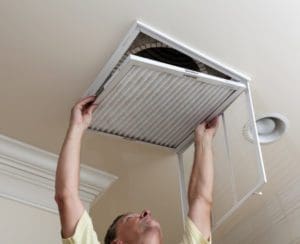
Things to Do to Prep Your HVAC for Winter
Here are some key maintenance steps to ensure your hvac system is ready for cooler temps:
-
Adjust Your Thermostat
Properly setting your thermostat can significantly impact your HVAC’s efficiency and longevity. Adjust it according to your daily schedule and the outdoor temperature.
-
Change Your Air Filter
Changing your air filter every one to three months helps maintain airflow and prevent issues like uneven heating and short cycling.
-
General Cleaning of the HVAC System
Clearing debris around the outdoor unit and ensuring indoor vents are clean and unobstructed.
-
Ducts
Inspecting your ductwork for leaks or damage in the ductwork. These issues can lead to uneven heating and increased energy costs.
Benefits of Scheduling HVAC Maintenance
Check Wiring
Faulty or frayed wiring can lead to system failures or safety hazards. A technician can assess and repair wiring issues, ensuring your system is safe and functional.
Inspect Units
Examine both the indoor and outdoor units of your HVAC system. This includes checking for any physical damage, blockages, or signs of wear and tear. Regular inspections can prevent minor issues from becoming major problems.
Inspect Parts
Each part of your HVAC system impacts its overall performance, from filters to fans. Inspecting these components regularly is a key winter HVAC tune-up practice. This helps identify and replace worn-out parts before they cause system breakdowns.
Check Connections
Ensure all connections within your HVAC system are secure. Loose connections can lead to inefficiencies and potential malfunctions. A thorough check of all electrical and duct connections is a part of Florida winter HVAC maintenance tips.
Check Pressure
Monitor the pressure levels within your HVAC system. Incorrect pressure can lead to increased energy usage and reduced heating or cooling effectiveness.
Check Burner
A clean and properly functioning burner is vital for efficient heating during colder months. Regular checks help in maintaining optimal performance and safety.
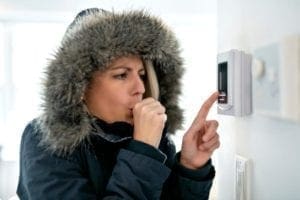
What About Cold Snaps
Preparing your HVAC system for sudden temperature drops promotes a smooth operation. Here’s what you should do:
-
Examine Unit
During cold snaps, examine your HVAC unit thoroughly. This includes checking for any unusual noises, performance issues, or signs of freezing. Prompt attention to these signs can prevent long-term damage.
-
Use Foam Insulation
Applying foam insulation to exposed pipes and ducts can prevent freezing and heat loss. This helps prepare your HVAC system for winter in Florida, especially during unexpected cold weather.
-
Check HVAC Regularly
Regular checks of your HVAC system are vital during the winter months. This involves monitoring its performance, noise levels, and energy consumption. Keeping a close eye on your system can help identify issues early. This keeps it in good working condition throughout the season.
Conclusion
As the season changes, taking proactive steps to prepare and protect your HVAC system can make a significant difference.
Regular maintenance and timely inspections help avoid common winter issues like heating inefficiencies or heating system breakdowns. Checking the filters, wiring, and burners ensures your system is clean and well-insulated. This can extend the life of your HVAC system and improve its performance.
If you live in Florida and want to prepare your HVAC system for the winter, book with IERNA’s. Our team of experts can provide tailored advice and services to suit your specific needs.
